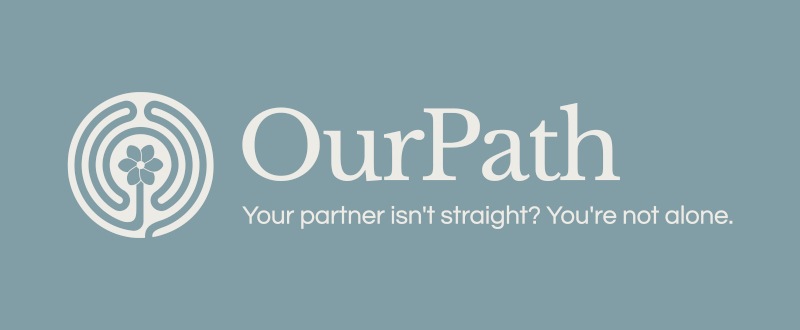OurPath Open Forum
This forum is for discussion of issues related to Mixed Orientation relationships only, that is when one partner is heterosexual (straight) and one is Lesbian, Gay, Bisexual, Transgender or Questioning.
If this does not apply to your topic, please find another forum.
* Opinions posted here, including that of the Administrator, are the poster's own and do not necessarily reflect the views or policies of OurPath.
* As a peer-to-peer network, any advice given is that of a peer, based on personal experience, and should not be considered professional in nature.
* Any discussion of LGBT related issues is acceptable provided it remains constructive and respectful of other viewpoints. Hateful, degrading, or prejudiced speech and/or personal attacks will not be tolerated.
NOTE: Due to recurring spam abuse, you must register to post.
- Isa1812
- Member
 Offline
Offline
Re: Seeking participants for mixed-orientation research!
Alex,
Thanks so much for those insights! Just from this forum, I'm beginning to catch on about the narcissistic component you are speaking about. I will definitely look out for this tendency as I go forward with my research. Since I am focusing on MOMs who separate/divorce for my dissertation, I wonder how prevalent the really toxic, narcissistic element is amongst those who separate, compared to couples where, even though there may be pain and heartbreak, that abusive or toxic element does not exist. And what factors may contribute to either outcome? I've known couples where the separation is generally amicable, and the ex-partners are able to maintain a close friendship and co-parent really well, as well as couples where the whole experience is really traumatizing.
It's interesting, my previous research for my master's thesis focused on mixed-orientation couples who stay together and report high levels of satisfaction, or in other words, the MOM relationship works for them and they are happy. These successful MOMs, if we want to call them that, are definitely the minority amongst all MOM experiences, but that is where I chose to start my research.
From my previous work, a successful MOM relies on two main components:
1) there exists some degree of romantic/sexual connection between the partners, even though that attraction may be outside the scope of the queer partner's general orientation. This is where we get into concepts like sexual fluidity or demi-sexuality. I recommend looking into Dr. Lisa Diamond's work to better understand this concept.
2) there is generally a really high level of overall relationship skills and functioning. Meaning, in order to have success, partners in MOMs already need to be really good at communication, really good at emotional intimacy, at listening to each other, at prioritizing each other, at self-differentiation, etc. Discovering or disclosing a queer partner's orientation can be such a blindsiding event in a couple's relationship that, without these skills, it is so easy for a MOM to begin to fall apart.
Anyway, I bring this up to say that the toxic/narcissistic piece may be a common element that represents the other side of this coin. Just as it takes exceedingly healthy individuals to make a MOM work (which makes success rare), there is perhaps a lot of potential for unhealthy or toxic dynamics to occur due to the unique elements of these relationships. I agree that the straight partner in a MOM, especially in a non-disclosed MOM, is especially vulnerable and potentially easy to manipulate or hurt if the queer partner chooses to.
I could speculate on all the factors that contribute to the relationship dynamics when a MOM does not work out, and whether that includes a toxic/narcissistic element or not, but to better understand, that is part of my purpose in continuing this research.
I also agree with your second point that the MOM umbrella can be really wide, and may represent couples with vastly different dynamics depending on what the sexual orientation is.

